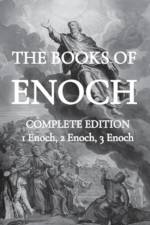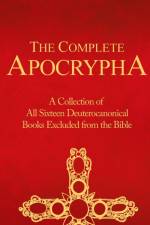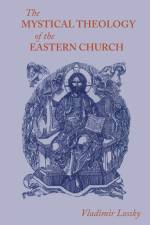av Thomas R
185,-
This book contains all three books attributed to Enoch. 1 Enoch, 2 Enoch, and 3 Enoch. The Books of Enoch are ancient Hebrew apocalyptic religious texts ascribed to Enoch, the son of Jared, the father of Methuselah, and the great-grandfather of Noah. The 1st Book of Enoch, also known as the Ethiopic Book of Enoch or 1 Enoch, is more often known as the Book of Enoch. Although the Western canon considers this book spurious, it is included in the Ethiopic Bible. It was deemed sacred by some of Christ's early disciples, but it was left out of the Bible and vanished for decades until it was unearthed in Ethiopic in 1773. This manuscript was translated into English in the 1820s and into German in the 1830s for the first time. Most academics believe that part of it was composed in the third century BCE and part in the first century CE (the part related to the Son of Man). Although the oldest complete copies of 1 Enoch are K-9 or Kebran 9, which dates from the late fourteenth to early fifteenth century, and Ethiopian Monastic Microfilm Library (EMML 2080), which dates from the fifteenth or fourteenth century, fragments discovered in Qumramin in the 1950s are over 2000 years old. Abbadianus 55 (perhaps fifteenth century) and British Museum Orient 485 are two more old noteworthy manuscripts (first half of the sixteenth century). The Slavonic Enoch, or 2 Enoch, is another spurious book discovered solely in Old Slavonic manuscripts, and it was previously included in the Old Slavonic Bible. It is commonly dated to the first century CE, although according to Matthew Black in The Oxford Handbook to Persons and Places of the Bible, there is no copy older than the fourteenth century BE. The 3rd Book of Enoch, also known as the Hebrew Enoch or 3 Enoch, is a Rabbinic literature written in Hebrew that is commonly dated to the fifth century CE. Some scholars assume it was composed by Rabbi Ishmael (second century CE), who was well-versed in both 1 and 2 Enoch.




